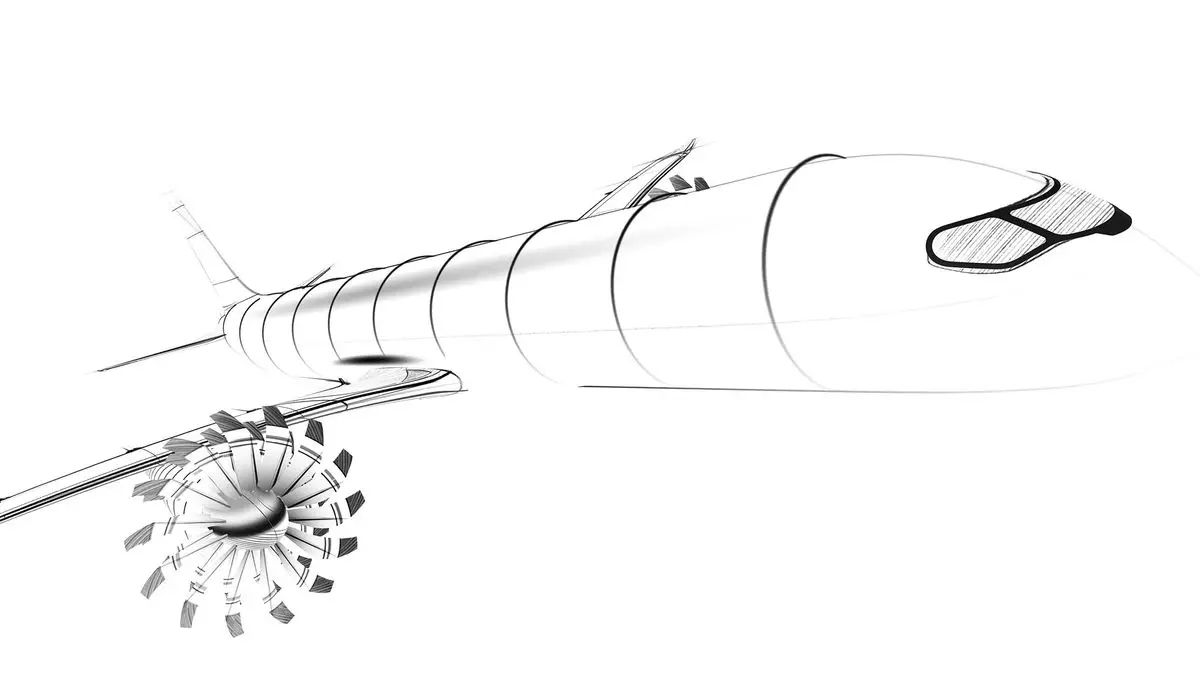Airbus is stepping boldly into the future of aviation with the ambitious plans for a next-generation single-aisle aircraft. Fueled by a vision to enhance fuel efficiency by an impressive 20% to 30%, Airbus has outlined a strategic timeline aiming for the latter half of the 2030s. This proposal is not merely about technological upgrades; it’s a paradigm shift that ultimately seeks to reconcile air travel with environmental sustainability. The potential impact on carbon emissions cannot be overstated, as the aviation industry grapples with climate change concerns and pursues the ambitious goal of achieving net-zero emissions by 2050.
At the heart of these efforts lies pioneering advancements in engine technology and wing design. Airbus is investing in breakthrough propulsion systems, including an open fan model that diverges from traditional turbofans. This shift promises to overcome the limitations faced by existing engines, such as drag, while maximizing efficiency through larger fans. The challenges associated with scaling engine capacities have led Airbus and its partner CFM International to undertake extensive testing. Anticipation is building around their first open fan test flight, planned for an A380 by the decade’s end, marking a significant leap in aviation technology.
Wing Technology: Where Elegance Meets Efficiency
Equally transformative is Airbus’s innovative approach to wing design. Inspired by nature’s design efficiency, the concept of folding wings presents an opportunity to enhance aerodynamics while addressing practical constraints. Sue Partridge’s reference to the albatross’s effortless glide encapsulates the wisdom behind developing longer and slimmer wings that generate less drag. However, this is not merely about ambitious designs; practical implementation poses logistical challenges. Many airports’ existing infrastructures cannot accommodate the envisioned wing lengths, necessitating creative solutions such as the development of folding wings.
Airbus is diligently working on this concept with wing demonstrators that would allow for reduced wingspan during taxiing and parking. This flexibility will serve to enhance airport compatibility while still providing the aerodynamic advantages crucial during flight. Partridge indicates that the prototype’s journey is a team effort, highlighting the collaborative spirit driving this future-forward initiative.
Material Innovation and Energy Solutions
The forward momentum toward fuel efficiency doesn’t stop with engines and wings. Airbus’s exploration extends into the very materials used to construct aircraft, with ongoing studies to develop stronger yet lighter fuselage components. This endeavor aims directly at reducing weight—another key factor that influences fuel consumption. By utilizing advanced materials, Airbus envisions not only a more robust airframe but also an enhanced overall performance profile of the aircraft.
Moreover, the incorporation of hybrid-electric systems can provide further emissions reductions. While these systems will not serve as primary in-flight propulsion, they will play a critical role in on-ground operations, such as taxiing and environmental controls within the cabin. By potentially reducing emissions by up to 5%, these innovations complement the overarching objective of the aviation sector to mitigate its ecological footprint.
Challenges Ahead: The Road to Realization
Despite these breakthroughs and the fervent enthusiasm within the industry, Airbus acknowledges the considerable challenges that lie ahead. As Bruno Fichefeux aptly noted, the company remains in the preliminary phases of developing these promising technologies—comparable to being surrounded by ingredients without yet having a complete recipe. The path to technological maturity will involve rigorous testing, validation, and refinement. Moreover, the need for global cooperation among stakeholders remains paramount to align policies and infrastructure with these transformative advancements.
Airbus’s vision represents an eloquent blend of innovation, practicality, and sustainability. The success of their ambitious project depends on overcoming current technological limitations and addressing the logistical realities of the aviation landscape. As the world of air travel undergoes a transformation—one shaped by responsible choices and groundbreaking advancements—the future of aviation gleams with possibility. Airbus is not just aspiring to meet the demands of the present; they’re daring to craft a future where travel can be both efficient and eco-friendly.


Leave a Reply